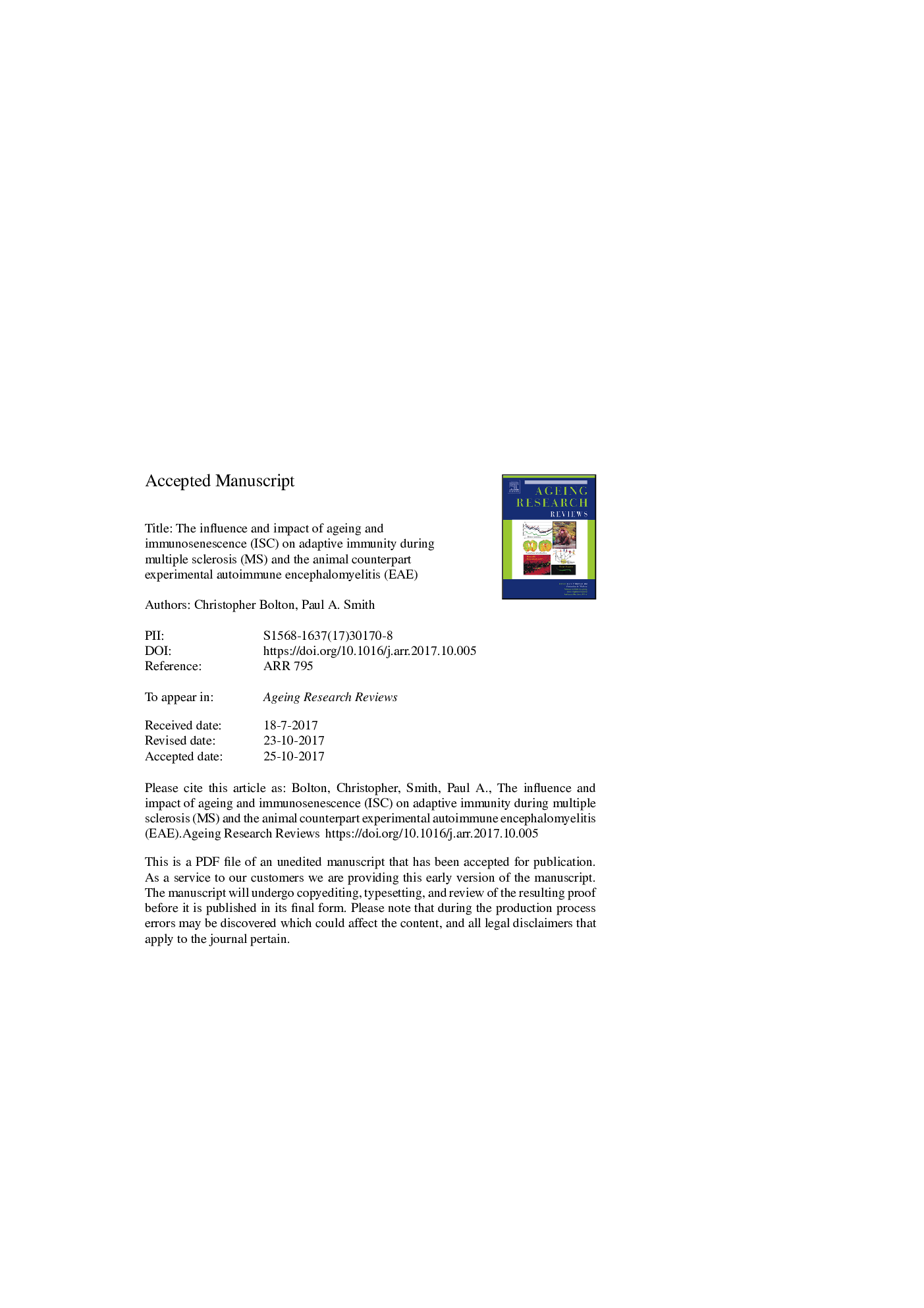| Article ID | Journal | Published Year | Pages | File Type |
|---|---|---|---|---|
| 8257237 | Ageing Research Reviews | 2018 | 57 Pages |
Abstract
The human ageing process encompasses mechanisms that effect a decline in homeostasis with increased susceptibility to disease and the development of chronic life-threatening illness. Increasing age affects the immune system which undergoes a progressive loss of efficiency, termed immunosenescence (ISC), to impact on quantitative and functional aspects of innate and adaptive immunity. The human demyelinating disease multiple sclerosis (MS) and the corresponding animal model experimental autoimmune encephalomyelitis (EAE) are strongly governed by immunological events that primarily involve the adaptive arm of the immune response. MS and EAE are frequently characterised by a chronic pathology and a protracted disease course which thereby creates the potential for exposure to the inherent, on-going effects and consequences of ISC. Collective evidence is presented to confirm the occurrence of established and unendorsed biological markers of ISC during the development of both diseases. Moreover, results are discussed from studies during the course of MS and EAE that reveal a premature upregulation of ISC-related biomarkers which indicates untimely alterations to the adaptive immune system. The effects of ISC and a prematurely aged immune system on autoimmune-associated neurodegenerative conditions such as MS and EAE are largely unknown but current evaluation of data justifies and encourages further investigation.
Related Topics
Life Sciences
Biochemistry, Genetics and Molecular Biology
Ageing
Authors
Christopher Bolton, Paul A. Smith,
